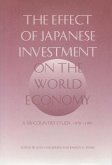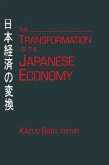Japanese firms have come under close examination by their international counterparts, who seek insight into the sources of Japanese accomplishments. The Japanese Firm reveals the complex network of institutions and practices surrounding the Japanese firm to explain the successes of the Japanese economy. A team of internationally renowned scholars uses theoretical and empirical work, and combines contributions from the fields of institutional economics, organizational theory, economic history, and sociology to elucidate the distinctive social and economic context of Japanese firms. Through an analysis of the internal structure of firms, the interdependency of firms and their suppliers, and the effects of relative income and power equality, Aoki and Dore recognize the diversity of experience within Japan and address the transferability or adaptability of the Japanese experience to the Nordic or Anglo-American context.
This book represents an attempt to explain and understand aspects of the firm in the Japanese economic system, and to explain the corporate success of Japan. It is in interdisciplinary in approach, containing both theoretical and empirical work, and has contributions from the fields of labour economics, comparative institutional analysis, information economics, finance, organizational theory, economic history, political science, and sociology.
This book represents an attempt to explain and understand aspects of the firm in the Japanese economic system, and to explain the corporate success of Japan. It is in interdisciplinary in approach, containing both theoretical and empirical work, and has contributions from the fields of labour economics, comparative institutional analysis, information economics, finance, organizational theory, economic history, political science, and sociology.








